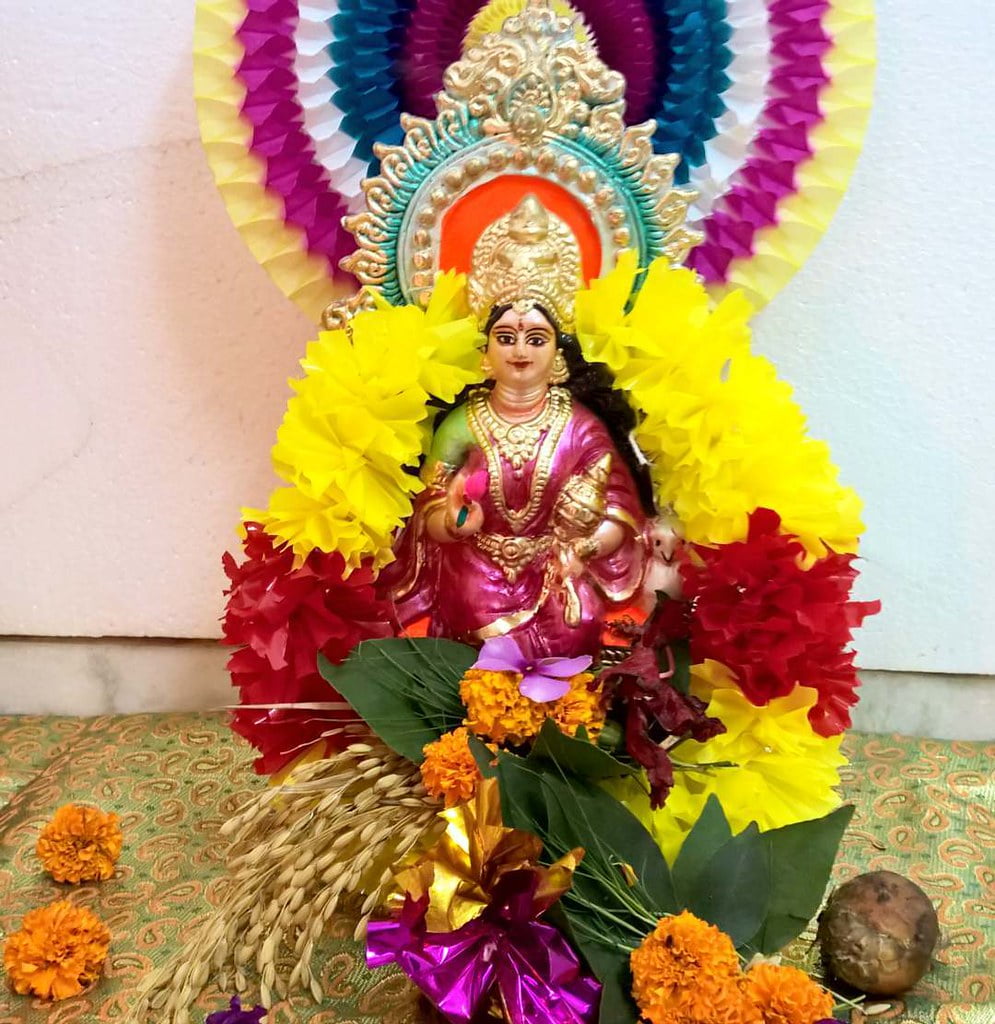Japanese names
for girls
"Exquisite Elegance Unveiled: Discover 'Pretty Japanese Baby Girl Names' for Your Little Blossom's Graceful Identity!"
“Welcome to a world of timeless charm and grace! Our curated collection of ‘Pretty Japanese Baby Girl Names’ invites you on a journey through the elegance and sophistication of Japanese culture. Embracing the beauty of the Land of the Rising Sun, these names exude an ethereal charm, evoking images of delicate cherry blossoms and serene landscapes. Each name is a poetic masterpiece, resonating with grace, poise, and an innate sense of beauty. Immerse yourself in this exquisite selection, where tradition meets sophistication, ensuring your precious baby girl is adorned with a name that reflects the captivating allure and enduring grace of Japanese heritage.”
Trending Name of This Week
Girl Name of the Week
Sara

Origin: “Sara” is a name with multi-ethnic roots. It is derived from various languages and traditions, including Hebrew, Arabic, and other cultures.
Hebrew Origin: In Hebrew, “Sara” (שָׂרָה) is commonly interpreted to mean “princess” or “noblewoman.” It is the name of several prominent figures in the Bible, most notably Sarah, the wife of Abraham and mother of Isaac.
Arabic Origin: In Arabic, “Sara” (سارة) is also used as a name and can mean “pure” or “untainted.”
Popularity: “Sara” is a name that transcends cultures and has been consistently popular in various parts of the world. It has been favored for its simplicity, elegance, and positive meanings across different languages.
japanese names for girls
Top Baby Names of 2024
Welcome, parents-to-be, to your one-stop shop for the hottest baby names of 2024! We’ve scoured the trend reports, delved into cultural influences, and even peeked at celebrity bundles to curate a list of 200 captivating names brimming with meaning and style.
Pretty japanese names for girls
- Aiko (愛子) – Meaning “child of love”; Origin: Japanese
- Hana (花) – Meaning “flower”; Origin: Japanese
- Sakura (桜) – Meaning “cherry blossom”; Origin: Japanese
- Yumi (弓) – Meaning “archery bow”; Origin: Japanese
- Haruka (遥) – Meaning “distant”; Origin: Japanese
- Mio (美桜) – Meaning “beautiful cherry blossom”; Origin: Japanese
- Nori (のり) – Meaning “believe” or “law”; Origin: Japanese
- Reina (玲奈) – Meaning “wise” or “clever”; Origin: Japanese
- Emiko (笑美子) – Meaning “smiling, beautiful child”; Origin: Japanese
- Sora (空) – Meaning “sky”; Origin: Japanese
- Misaki (美咲) – Meaning “beautiful blossom”; Origin: Japanese
- Ayumi (歩美) – Meaning “walk, beauty”; Origin: Japanese
- Nana (七菜) – Meaning “seven vegetables”; Origin: Japanese
- Yua (結愛) – Meaning “binding love”; Origin: Japanese
- Riko (理子) – Meaning “child of truth”; Origin: Japanese
- Kira (きら) – Meaning “sparkle” or “shine”; Origin: Japanese
- Mei (芽依) – Meaning “sprouting goodness”; Origin: Japanese
- Rin (凛) – Meaning “dignified” or “severe”; Origin: Japanese
- Miyu (美優) – Meaning “beautiful, gentle”; Origin: Japanese
- Sayuri (さゆり) – Meaning “small lily”; Origin: Japanese
- Yuki (雪) – Meaning “snow”; Origin: Japanese
- Mariko (真理子) – Meaning “child of truth”; Origin: Japanese
- Momo (桃) – Meaning “peach”; Origin: Japanese
- Chika (千佳) – Meaning “scattered flowers”; Origin: Japanese
- Hinata (陽向) – Meaning “sunny place”; Origin: Japanese
- Airi (愛莉) – Meaning “love” and “jasmine”; Origin: Japanese
- Miyuki (美幸) – Meaning “beautiful happiness”; Origin: Japanese
- Chihiro (千尋) – Meaning “thousand questions” or “search”; Origin: Japanese
- Aya (彩) – Meaning “color” or “design”; Origin: Japanese
- Ami (亜美) – Meaning “Asia, beauty”; Origin: Japanese
- Kokoro (こころ) – Meaning “heart, mind”; Origin: Japanese
- Koharu (小春) – Meaning “small spring”; Origin: Japanese
- Miku (美空) – Meaning “beautiful sky”; Origin: Japanese
- Satsuki (五月) – Meaning “fifth month” or “May”; Origin: Japanese
- Rika (理香) – Meaning “true fragrance”; Origin: Japanese
- Tsubaki (椿) – Meaning “camellia flower”; Origin: Japanese
- Hikari (光) – Meaning “light”; Origin: Japanese
- Yuriko (百合子) – Meaning “lily child”; Origin: Japanese
- Asuka (明日香) – Meaning “tomorrow’s fragrance”; Origin: Japanese
- Yume (夢) – Meaning “dream”; Origin: Japanese
- Rumi (瑠美) – Meaning “lapis lazuli” and “beautiful”; Origin: Japanese
- Nanami (七海) – Meaning “seven seas”; Origin: Japanese
- Hinako (陽菜子) – Meaning “sunshine, greens child”; Origin: Japanese
- Natsumi (夏美) – Meaning “beautiful summer”; Origin: Japanese
- Izumi (泉) – Meaning “fountain”; Origin: Japanese
- Shiori (詩織) – Meaning “poem” and “weave”; Origin: Japanese
- Ayane (彩音) – Meaning “colorful sound”; Origin: Japanese
- Hoshi (星) – Meaning “star”; Origin: Japanese
- Kyoko (響子) – Meaning “echo child”; Origin: Japanese
- Yua (優愛) – Meaning “gentle” and “love”; Origin: Japanese
- Saki (咲) – Meaning “blossom”; Origin: Japanese
- Asumi (明澄) – Meaning “clear tomorrow”; Origin: Japanese
- Natsuki (夏希) – Meaning “summer hope”; Origin: Japanese
- Shizuka (静香) – Meaning “quiet fragrance”; Origin: Japanese
- Mitsuki (美月) – Meaning “beautiful moon”; Origin: Japanese
- Haru (春) – Meaning “spring”; Origin: Japanese
- Sumire (菫) – Meaning “violet”; Origin: Japanese
- Yuri (百合) – Meaning “lily”; Origin: Japanese
- Wakana (和奏) – Meaning “harmonious music”; Origin: Japanese
- Ayaka (彩香) – Meaning “color” and “fragrance”; Origin: Japanese
- Yuka (結花) – Meaning “binding” and “flower”; Origin: Japanese
- Anzu (杏) – Meaning “apricot”; Origin: Japanese
- Minami (南) – Meaning “south”; Origin: Japanese
- Mizuki (美月) – Meaning “beautiful moon”; Origin: Japanese
- Naho (菜穂) – Meaning “greens” and “ear of grain”; Origin: Japanese
- Kaede (楓) – Meaning “maple”; Origin: Japanese
- Yui (結衣) – Meaning “bind” and “clothing”; Origin: Japanese
- Suzu (鈴) – Meaning “bell”; Origin: Japanese
- Narumi (鳴海) – Meaning “sound” and “sea”; Origin: Japanese
- Ren (蓮) – Meaning “lotus”; Origin: Japanese
- Kanade (奏) – Meaning “play music”; Origin: Japanese
- Yuzuki (柚希) – Meaning “citrus” and “hope”; Origin: Japanese
- Sora (宙) – Meaning “sky”; Origin: Japanese
- Ran (蘭) – Meaning “orchid”; Origin: Japanese
- Konomi (このみ) – Meaning “favorites”; Origin: Japanese
- Mai (舞) – Meaning “dance”; Origin: Japanese
- Yuki (由貴) – Meaning “reason” and “noble”; Origin: Japanese
- Riko (莉子) – Meaning “jasmine child”; Origin: Japanese
- Karin (花鈴) – Meaning “flower bell”; Origin: Japanese
- Hina (陽菜) – Meaning “sunny greens”; Origin: Japanese
- Asami (麻美) – Meaning “hemp” and “beautiful”; Origin: Japanese
- Megumi (恵) – Meaning “blessing”; Origin: Japanese
- Tsumugi (紬) – Meaning “spun”; Origin: Japanese
- Rui (瑠衣) – Meaning “lapis lazuli” and “clothing”; Origin: Japanese
- Nanami (菜々実) – Meaning “seven seas” and “fruit”; Origin: Japanese
- Kana (香菜) – Meaning “fragrant greens”; Origin: Japanese
- Hikaru (光) – Meaning “light”; Origin: Japanese
- Ayano (綾乃) – Meaning “design” and “from”; Origin: Japanese
- Ruri (瑠璃) – Meaning “lapis lazuli”; Origin: Japanese
- Honoka (穂花) – Meaning “ear of grain” and “flower”; Origin: Japanese
- Kotone (琴音) – Meaning “Japanese harp sound”; Origin: Japanese
- Miyabi (雅) – Meaning “elegance”; Origin: Japanese
- Sumika (澄香) – Meaning “clear” and “fragrance”; Origin: Japanese
- Tomomi (知美) – Meaning “knowledge” and “beauty”; Origin: Japanese
- Chisato (千里) – Meaning “a thousand miles”; Origin: Japanese
- Mitsuko (光子) – Meaning “child of light”; Origin: Japanese
- Ayumi (歩美) – Meaning “walking” and “beauty”; Origin: Japanese
- Kiyomi (清美) – Meaning “pure” and “beautiful”; Origin: Japanese
- Shizuka (静) – Meaning “quiet”; Origin: Japanese
- Kaori (香織) – Meaning “fragrance” and “weave”; Origin: Japanese
- Aimi (愛美) – Meaning “love” and “beauty”; Origin: Japanese
- Emi (笑美) – Meaning “smile” and “beauty”; Origin: Japanese
- Hinako (陽菜子) – Meaning “sunshine” and “greens child”; Origin: Japanese
- Koharu (小春) – Meaning “small spring”; Origin: Japanese
- Yua (結愛) – Meaning “binding love”; Origin: Japanese
- Airi (愛莉) – Meaning “love” and “jasmine”; Origin: Japanese
- Asumi (明澄) – Meaning “clear tomorrow”; Origin: Japanese
- Natsumi (夏美) – Meaning “beautiful summer”; Origin: Japanese
- Aoi (葵) – Meaning “hollyhock”; Origin: Japanese
- Kokona (心菜) – Meaning “heart” and “greens”; Origin: Japanese
- Momoka (百香) – Meaning “hundred” and “fragrance”; Origin: Japanese
- Nozomi (望美) – Meaning “hope” and “beauty”; Origin: Japanese
- Suzu (鈴) – Meaning “bell”; Origin: Japanese
- Kanon (花音) – Meaning “flower sound”; Origin: Japanese
- Mitsuki (美月) – Meaning “beautiful moon”; Origin: Japanese
- Ran (蘭) – Meaning “orchid”; Origin: Japanese
- Ayana (彩菜) – Meaning “color” and “greens”; Origin: Japanese
- Kanna (神奈) – Meaning “god” and “apple tree”; Origin: Japanese
- Natsuki (夏希) – Meaning “summer hope”; Origin: Japanese
- Ayu (歩結) – Meaning “walk” and “tie/bond”; Origin: Japanese
- Kotomi (琴美) – Meaning “harp” and “beauty”; Origin: Japanese
- Riko (莉子) – Meaning “jasmine child”; Origin: Japanese
- Sae (紗栄) – Meaning “thread” and “glory”; Origin: Japanese
- Futaba (双葉) – Meaning “twin leaves”; Origin: Japanese
- Himari (陽葵) – Meaning “sun” and “sunflower”; Origin: Japanese
- Rin (凜) – Meaning “dignified” or “severe”; Origin: Japanese
- Asami (麻美) – Meaning “hemp” and “beautiful”; Origin: Japanese
- Karin (花鈴) – Meaning “flower bell”; Origin: Japanese
- Nanami (菜々実) – Meaning “seven seas” and “fruit”; Origin: Japanese
- Miyu (美結) – Meaning “beautiful tie/bond”; Origin: Japanese
- Hotaru (蛍) – Meaning “firefly”; Origin: Japanese
- Moe (萌) – Meaning “sprouting” or “budding”; Origin: Japanese
- Asuka (飛鳥) – Meaning “flying bird”; Origin: Japanese
- Hina (陽菜) – Meaning “sunny greens”; Origin: Japanese
- Rina (莉奈) – Meaning “jasmine vegetables”; Origin: Japanese
- Yuzuki (柚希) – Meaning “citrus” and “hope”; Origin: Japanese
- Misa (美咲) – Meaning “beautiful blossom”; Origin: Japanese
- Yui (唯) – Meaning “only”; Origin: Japanese
- Nao (奈緒) – Meaning “apple tree” and “thread”; Origin: Japanese
- Rui (瑠衣) – Meaning “lapis lazuli” and “clothing”; Origin: Japanese
- Konomi (このみ) – Meaning “favorites”; Origin: Japanese
- Mai (舞) – Meaning “dance”; Origin: Japanese
- Riko (莉子) – Meaning “jasmine child”; Origin: Japanese
- Karin (花鈴) – Meaning “flower bell”; Origin: Japanese
- Hina (陽菜) – Meaning “sunny greens”; Origin: Japanese
- Asami (麻美) – Meaning “hemp” and “beautiful”; Origin: Japanese
- Kaede (楓) – Meaning “maple”; Origin: Japanese
- Yui (結衣) – Meaning “bind” and “clothing”; Origin: Japanese
- Suzu (鈴) – Meaning “bell”; Origin: Japanese
- Ran (蘭) – Meaning “orchid”; Origin: Japanese

Trending Cute Baby names Lists
“Explore the latest cute baby name trends and discover more names that you can consider for your baby.”




Most Popular Favorites Baby Names
"Bathing: Give sponge baths until the umbilical cord stump falls off. Use mild Baby soap and avoid frequent bathing to prevent dry skin."
Maintaining proper hygiene while caring for your newborn’s delicate skin, especially around the umbilical cord area, is crucial. Here’s an elaboration on the bathing process:
Sponge Baths: Until the umbilical cord stump naturally dries and falls off (typically within one to three weeks), it’s advisable to give your baby sponge baths instead of submerging them in a tub of water. This helps minimize the risk of infection and keeps the umbilical area dry.
Frequency: During the initial weeks, limit bathing frequency to about two or three times a week. Frequent bathing can strip the skin of its natural oils, leading to dryness and potential irritation.
Gathering Supplies: Before starting the bath, prepare all necessary items within arm’s reach. You’ll need a basin of warm water, a soft washcloth or sponge, mild baby soap formulated for sensitive skin, and a soft towel.
Bathing Steps:
- Lay your baby on a soft, flat surface or a changing table. Make sure to keep a secure hold to prevent accidents.
- Use a soft, damp washcloth or sponge to gently clean your baby’s face, neck, and body, avoiding the umbilical area initially.
- Carefully clean around the umbilical cord area with plain water. Avoid rubbing or pulling at the stump, and gently pat it dry after cleansing to prevent moisture buildup.
- Use a small amount of mild baby soap on the cloth or sponge to gently clean the rest of your baby’s body. Be sure to rinse thoroughly with water to remove any soap residue.
- Pat your baby’s skin dry gently with a soft towel, paying attention to skin folds and creases.
Umbilical Cord Care: Keep the umbilical cord stump clean and dry. Fold the diaper below the stump to allow air circulation and avoid covering it. If you notice any redness, foul odor, or discharge around the stump area, contact your healthcare provider.
Skin Moisturization: After the bath, consider applying a gentle, fragrance-free baby lotion or moisturizer to keep your baby’s skin soft and hydrated, especially in dry weather conditions.
Remember, every baby is different, and it’s essential to monitor your baby’s skin for any signs of irritation or allergic reactions to products used during bath time. Always consult your paediatrician or healthcare provider if you have any concerns about your baby’s skin or umbilical cord care.
Testimonial
My Client Saying



Contact Me
Get In Touch
d2023logic@gmail.com
Address
New Digha, Purba Medinipur
721463























